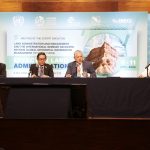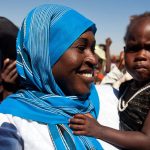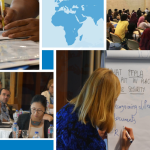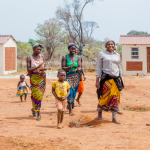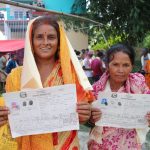Every year the World Bank Conference on Land and Poverty brings together representatives from governments, civil society, academia, the development community, and the private sector to discuss issues of concern to communities, land practitioners and policymakers worldwide. Under the theme of “Integrating Land Governance into the Post-2015 Development Agenda: Harnessing Synergies for Implementation and Monitoring Impact”, the 15th Annual Conference on Land and Poverty featured a wide range of presentations to share experiences on innovative ways to address pressing problems of land tenure security, women’s access to land, youth, governance and transparency, food security, urbanization, climate change, and land and post-conflict contexts.

The UN-Habitat/GLTN booth at the World Bank Conference
The Conference came at a critical time when the global community is increasingly focused on the Post-2015 Development Agenda. It was a unique opportunity to put land higher on the Agenda in the post-2015 context, with a particular focus on gender equality and the right to own land and property.
GLTN, facilitated by UN-Habitat, was among the sponsors and one of the most active actors during the Conference, and partners participated in many events and sessions advocating the GLTN agenda and initiatives such as women’s access to land, youth and land, regional land initiatives in Asia-Pacific and in East and Southern Africa, tenure security, food security, land research, climate change, African Land Policy Initiative work, land indicators and urban development challenges. GLTN partners were also able to hold bilateral meetings to strengthen collaboration and joint initiatives.
The GLTN Secretariat made presentations and chaired a number of sessions and side events. On Friday 28th March 2014, the GLTN Secretariat coordinated a Post-Conference Action Planning meeting on Land Indicators, building on the Expert Group Meeting (EGM) held on the 22nd March 2014. The Land Indicators meetings brought together a range of participants with a common interest in developing and collecting common land indicators, and in leveraging resources to deliver on indicator recommendations for the Post-2015 Development Agenda. Participants included UN agencies, international finance institutions, bilateral donors, civil society networks, public sector technical specialists and independent experts. One of the emerging land indicators deals with tenure security for both women and men.

